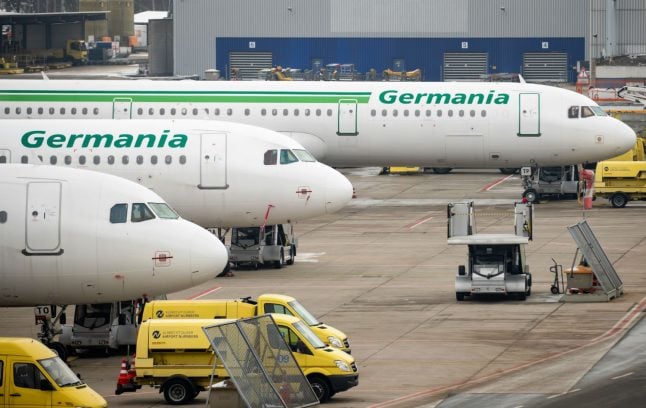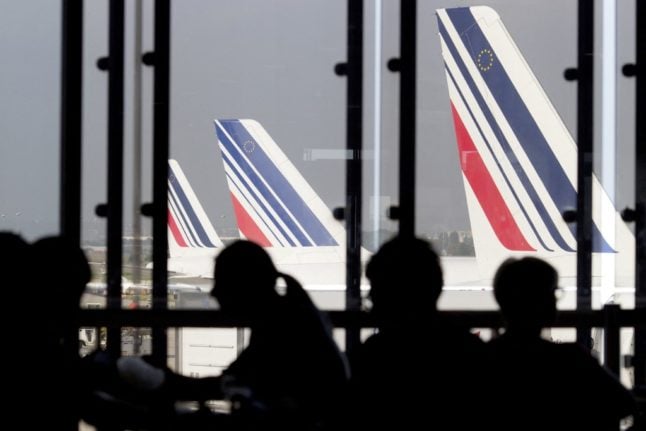The Berlin-based airline had filed for bankruptcy on Monday and ended flight operations Tuesday, resulting in all of its scheduled flights being cancelled.
The staff affected – around 1700 employees – will be paid wages until the end of March, DPA reported Tuesday.
Administrators estimate that 60,000 passengers will be affected by the suspension of Germania flight operations in the next two weeks.
Germania recommended passengers who booked as part of a package holiday to contact the tour operator for replacement flights. However, passengers who bought their ticket directly from the airline are not entitled to a replacement flight.
SEE ALSO: Flights cancelled as Germania airline files for bankruptcy
It's not the first airline to struggle in an industry full of challenges.
Nosedive
Almost 10 low-cost airlines collapsed in 2018, including Belgium's VLM Airlines, Denmark's Primera Air and Cyprus' Cobalt Air.
This year has not started much better with Germania, which transported more than four million passengers a year, not only filing for bankruptcy but cancelling all flights with immediate effect.
The airline, which flew mainly Mediterranean, North African and Middle Eastern holiday routes for German sun-seekers on package trips, said it “ultimately failed to successfully complete our financing efforts to meet short-term liquidity needs”.
Other ailing airlines have only narrowly escaped folding this year, such as the British Flybe, which a consortium led by Virgin Atlantic is bidding to buy for just one pence per share.
Even the Irish budget airline Ryanair — the industry leader — has felt the pressure, revealing on Monday it would restructure after a net loss of €20 million in the last three months of 2018, its first quarterly loss since 2014.
In 2017, meanwhile, Air Berlin, formerly Germany's second-largest airline, went bust in 2017 after shareholder Etihad Airways withdrew funding following years of losses.
'Unrestrained competition'
Competition is fierce for short-haul flights in Europe as airlines drop prices hoping to win over thrifty holiday seekers, pushing their profit margins lower.
The average cost of a Ryanair flight, for example, is now below €30.
Olivier Fainsilber, aviation analyst at consultancy Oliver Wyman, said it was a time of “unrestrained competition” after relatively low barriers allowed many new companies to enter the market.
“Economic Darwinism has always been strongly at work in the airline sector,” he said.
“To be successful you must be very efficient.”
Companies have also faced stiff competition from low-cost subsidiaries set up by big operators such as British Airways parent company IAG, which has also ventured into budget long-haul flights.
Sebastian Zank, an analyst at Scope Ratings, said Germania's collapse “shows again that to survive in Europe's crowded sector, carriers need to be niche players or have an extensive network as is the case with budget leader Ryanair and multi-brand operators like Lufthansa Group and IAG”.
“The marginalization of smaller airlines and more industry consolidation appear inevitable,” he added.
Oil slick
Surging oil prices have added to the industry's woes. At the height of the spike in July 2018, the price of an oil barrel nearly reached $75 — up from $50 at the same time the previous year.
“There will always be highs and lows, but it is when a period gets tense that we see who manages to hold on,” said Fainsilber.
“You need to have a little war chest.”
European airlines were also hit by a drop in the euro, which lost five percent against the dollar in 2018.
But the outlook for this year is not so bleak, with oil prices ebbing and passenger numbers expected to remain stable.
“There is also growth, it's just that the incline is not as steep as in the past,” said Fainsilber.



 Please whitelist us to continue reading.
Please whitelist us to continue reading.
Member comments